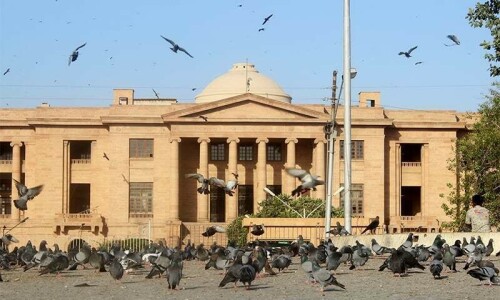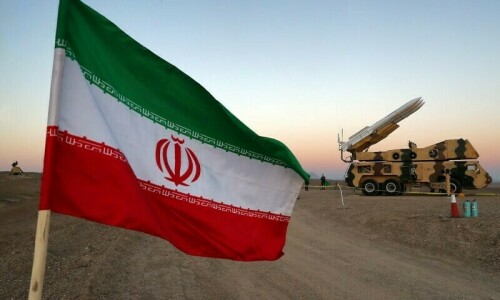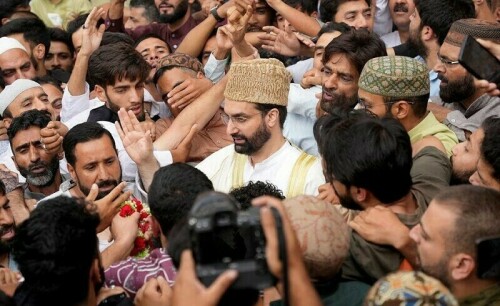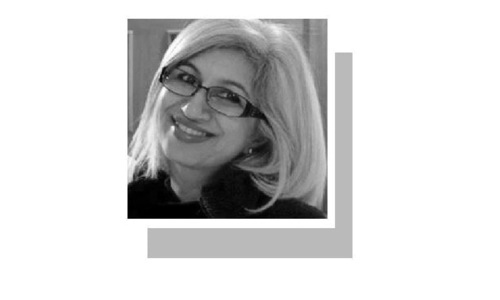
WHAT makes a great verse? Is it theme, philosophy, imagery, precision, words or emotions? All of them, it seems. But there can hardly be any consensus about the ingredients of a great poem and everybody has his/ her own, personal criterion for great poetry. The choice of a favourite poet is, largely, a matter of personal like and dislike.
In western culture, there has been a long tradition of making literary lists and finding readers’ opinion on different literary issues. However, in Urdu, we don’t find many lists or surveys about literary tastes. So when this writer came across a survey about Urdu’s best poets, it interested him much.
Ijmaal, a Karachi-based Urdu literary journal, has carried out an interesting survey: who is the greatest living poet of Urdu? In the latest issue of Ijmaal — just published — an editorial note asks “Who can be termed our greatest living poet? When Faiz Ahmed Faiz was alive, the answer was, of course, Faiz, as he was ahead of all his contemporaries. Ahmed Faraz was dubbed as the greatest poet of ghazal and after Faiz, Muneer Niazi was considered the greatest poet of nazm (poem). Now that all these three poets have left for their heavenly abodes, the question is who the greatest poet of Urdu ghazal and Urdu nazm among our contemporaries is.
Faheem Islam Ansari, the editor of Ijmaal, thinks there are about 500 poets composing ghazal and about 200 poets writing poems in Urdu today and we must know who the most admired ones are. He put the question before, according to him, “eight of our famous contemporary poets”. From their answers has emerged a pattern that gives us some idea about who the most admired poets are, at least by these eight litterateurs. But first let us have a look at the names of these eight persons: Ahmed Sagheer Siddiqi, Iqtedaar Javed, Khawer Ejaz, Farrukh Yar, Arif Abbasi, Kashif Ghaaer, Faheem Shanas Kazmi and Zafar Iqbal, the poet from Okara known for his linguistic experimentations. Though the selection of these poets as judges may be questioned by some, let us concentrate on their answers since they are poets themselves and some of them are critics, too.
The compiled results show that for the category of nazm (poem), according to these judges, there are 21 poets who may be declared the best or greatest. Of them, Abrar Ahmed got four votes, which is the most number of votes that anybody in this category got. Followed by him are Aftab Iqbal Shameem (3 votes), Saqi Farooqi, Iftikhar Arif, Saleemur Rahman, Iqtidar Javed, Naseer Ahmed Nasir and Satyapal Anand (2 votes each). While Gulzar, Muhammad Alavi, Amjad Islam Amjad, Farrukh Yar, Ehsaan Akber, Kishwar Naheed, Riaz Majeed, Sarmad Sehbai, Anwaar Fitrat, Hameeda Shaheen, Mustafa Arbaab, Saeeduddin and Ahmed Saleem got one vote each.
As for ghazal, 14 poets were selected. Of them Zafar Iqbal got five votes, which is the highest number. Ahmed Mushtaq, Rasa Chughtai and Akber Masoom got four votes each. Iftikhar Arif was named by three judges and Ahmed Sagheer Siddiqi by two. Rest of the poets had one vote each and they are: Anwer Sha’oor, Muhammad Alavi, Izharul Haq, Abbas Tabish, Shaheen Abbas, Faisal Ajami, Saleem Kausar and Mohsin Changezi.
Faheem Islam Ansari, the editor of Ijmaal, is a poet, critic and journalist. An author and compiler of many books, he has been regularly publishing the magazine and it is the 9th issue. One wonders how he manages it because these days literary journals have very meagre circulations and Ijmaal does not accept any advertisement for the inner pages. The magazine was mired in a controversy from its very first issue because of the publication of a pen-sketch but since then things seem to be a settling a bit as the prompt and punctual appearance of the periodical shows. Also, the contents prove that the journal has been able to garner the support of some well-known authors, such as Dr Anwer Sadeed, Dr Saleem Agha Qazalbash, Dr Ziaul Hasan, Rauf Niazi, Ahmed Sagheer Siddiqi, Shafeeq Ahmed Shafeeq, Khawer Ejaz, Abraar Ahmed, Agha Gul, Naseem Anjum, Ameenuddin, Kawish Abbasi and many more.
Faheem Ansari in his editorial has raised the issue of ‘tabdeeli’ (change). While he welcomes the slogans of change because, as he puts it, it expresses a revolt against the status quo, he questions the possibility of bringing any change through literature without changing Pakistan’s social fabric.
Saleem Aazar in his article on Hafeez Jallundhari has reminded us that the poet who created Pakistan’s national anthem was also a short story writer and a collection of Hafeez’s short stories was published titled Haft paiker. In addition to critical essays, Ijmaal offers ghazals, poems, short stories, book reviews and translations.
But one feels that the feature surveying Urdu poets is too narrowly based and we need to have a real, broad-based survey that must include some bigwigs who could opine about the great contemporary Urdu poets.
Published in Dawn, January 4th, 2016
















































